Baby-led weaning (BLW) is an approach that encourages introducing solid food to babies by letting them feed themselves, starting around 6 months of age. Instead of giving babies purées, you offer them a safe version of the family meal, which they can pick up and eat at their own pace. This approach offers a variety of benefits, such as encouraging healthier eating behaviors and developing fine motor skills. Plus, it can be more enjoyable for babies and for parents too.
We at Bhaskar Health were eager to find out what kinds of benefits this approach can offer and thought it could be very useful, so we decided to share this article with all of you. If you plan to use this approach with your baby, it’s advised to consult with your doctor first.
It can protect them against weight gain later in life.
With this approach, babies are much more involved in the eating process and can grab the food and bring it to their mouth at their own pace. This way, they have more freedom to stop eating when they are full, thus lowering the risk of consciously or subconsciously overeating compared to spoon-fed babies.
According to a study, 11% of the babies in the controlled group who were spoon-fed were categorized as obese compared to 1% of the group who were weaned using the BLW approach.
It can reduce picky eating.
By using the BLW method, more textures and tastes are introduced to the baby early on in their life. This can reduce the baby’s fussiness around food and they can become more accepting of a wider variety of foods, flavors, and textures.
Babies who explore different varieties of foods early on can become more adventurous eaters, meaning they are more likely to eat and try a new, broader range of foods as they grow up.
It can help babies develop healthy eating habits.
Because babies have more freedom to choose how much they want to eat, the BLW approach might produce healthier eaters compared to babies who were spoon-fed. As babies are active participants in the feeding process, it is often claimed that BLW encourages healthy eating habits later in babies’ lives.
According to some research, babies around 18-24 months who were weaned using a BLW approach were more aware of their hunger and better able to detect feelings of fullness. As a result, this can aid in the development of good eating habits based on hunger rather than external stimuli, which will benefit them throughout their lives.
In another study, kids weaned using this approach as preschoolers were less likely to desire sweets than children who were weaned using a purée-feeding approach.
It helps them develop fine motor skills.
This approach allows babies to practice picking up pieces of food using their thumb and index finger and practice eye-hand coordination, which can help them in developing fine motor skills. Also, babies who feed themselves solid foods may learn how to swallow and chew more quickly than spoon-fed babies.
It can be less stressful for parents and more enjoyable for the babies.
A BLW approach can take some pressure off of parents as they can simply make a BLW-appropriate version of family meals for their little ones. Babies then can pick what and how much they want to eat from a variety in front of them, which can make them enjoy the food and the feeding process more.
Also, mealtimes can become a social occasion as parents and children can eat the same thing at the same time. Babies can feel more included in the whole process and will try to copy and mimic their parents’ behavior.
Some research also showed that mothers who practice BLW were less anxious during the weaning period.
How to do it safely
- Make sure your baby sits up straight and faces you while they eat.
- Don’t leave your baby alone when eating.
- Allow your infant to grasp the food and take it to their mouth by themselves and at their own pace so they are in control of the amount of food they intake.
- Be sure that the foods you give them are easily mashed when pressed between your lips or fingers.
- Foods should be cut in a lengthy shape so the baby can easily pick up and hold it in their hand.
- Avoid foods that are overly sticky, have a round shape, or can easily break into crumbs.
What are your thoughts on this approach? Do you spoon-feed your child or do you let them feed themselves?

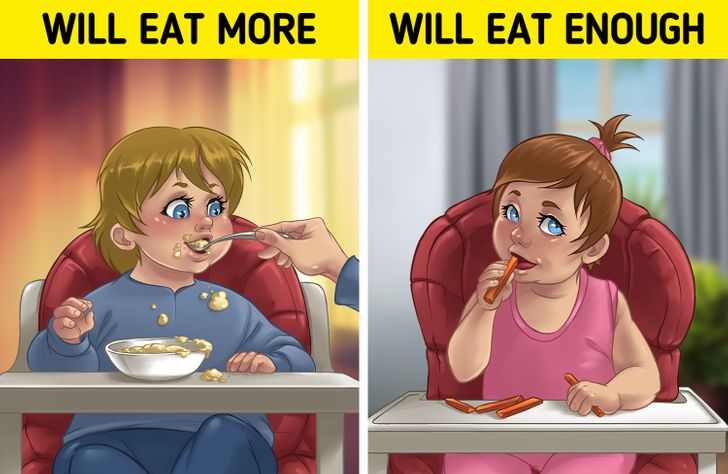
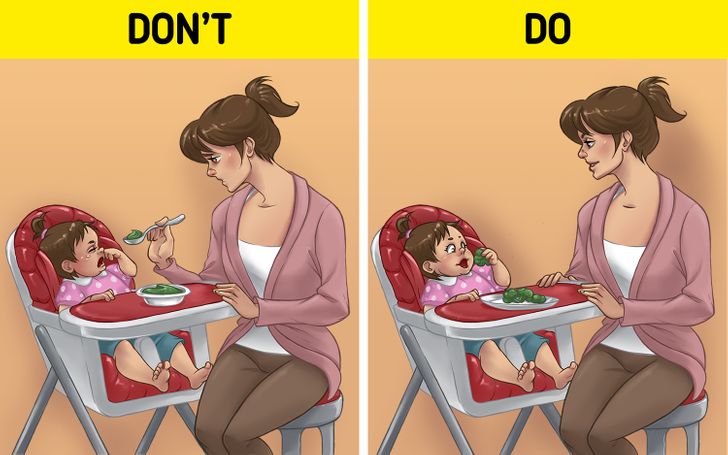
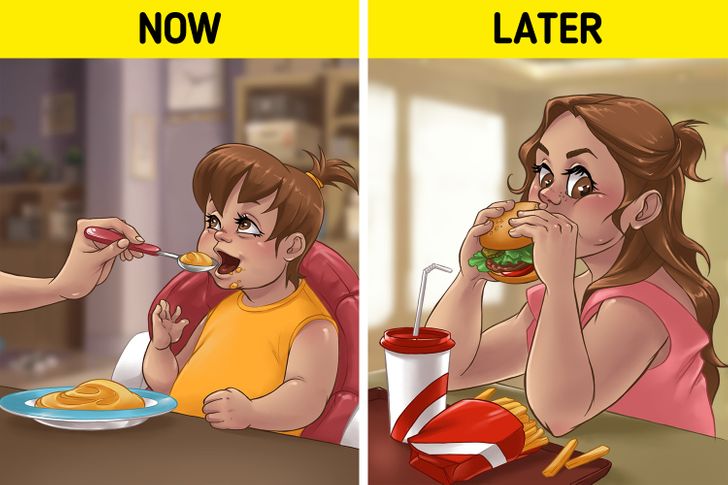
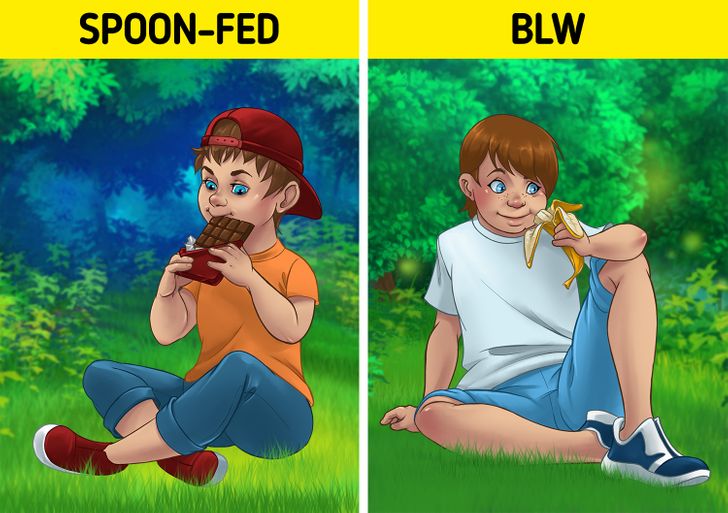
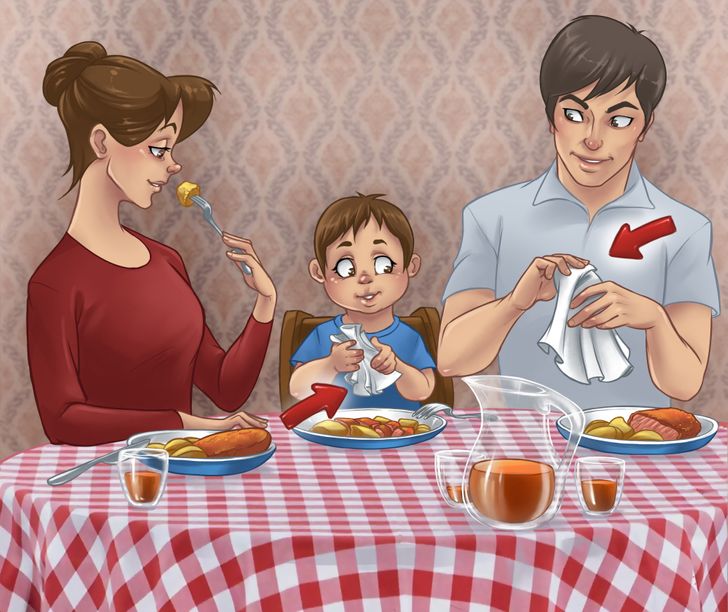
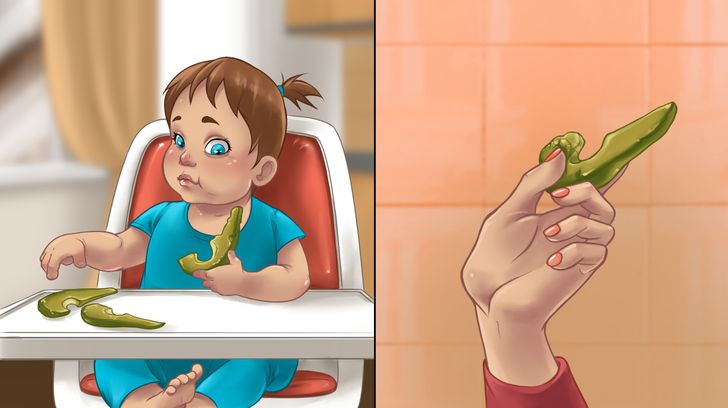
0Comments